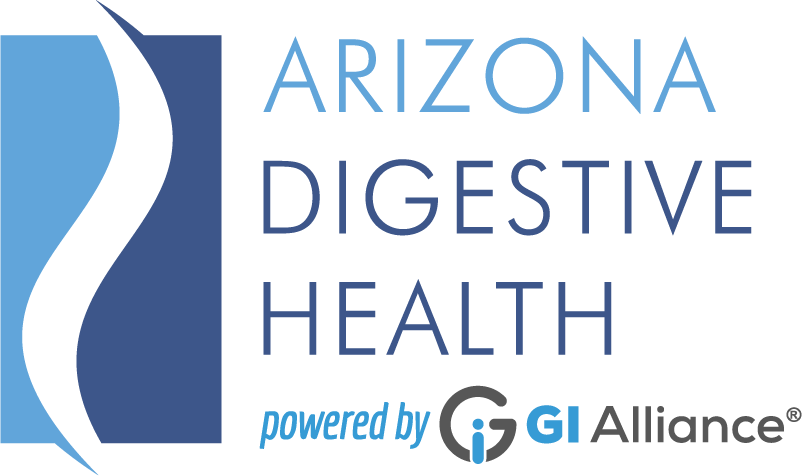What is an esophageal motility test?
Esophageal motility studies at Arizona Digestive Health are tests designed to evaluate the contractile and relaxation properties of the esophagus. To conduct the examination, a narrow and pliable catheter will be positioned through the nose into the esophagus. An esophageal motility evaluation can be recommended to help pinpoint the cause behind:
- Regurgitation
- Esophageal spasm
- Severe gastroesophageal reflux
- Before undergoing esophageal surgery
- Trouble with swallowing
- Chest pain
To meet with a gastroenterologist who can perform an esophageal motility study or esophageal manometry procedure in Phoenix, AZ, please get in touch with our location today.

What can I expect the day before an esophageal motility study?
The day before your esophageal motility study, you will be provided with instructions and information from your Arizona Digestive Health physician discussing the preparations you need to follow. In most cases, patients will be allowed to eat normally the day before the assessment. You will be advised not to eat anything by mouth after 12:00 am (midnight) with the exception of medications. It is highly essential to follow the information and instructions stated by your GI physician. Specific instructions concerning your medications will also be provided. The majority of the time, your medication regimen will not be altered. However, in certain circumstances, especially in individuals who take blood thinners, (such as aspirin, anti-inflammatories, warfarin, Coumadin®, Plavix®) and in patients with diabetes, specific instructions will be provided.
What happens on the day of the esophageal motility study?
On the day of your test, you will be asked to come to the endoscopy facility half an hour ahead of your evaluation. This is to allow time to fill out patient forms and get ready for the esophageal motility assessment.
After entering the treatment room, you will need to lie down on a patient exam table. Either your left or right nostril will be numbed with a number solution. Our team will then gently place a thin catheter into your nose. As the catheter is inserted into the esophagus, you will be required to swallow to help enlarge the opening to the esophagus. Our staff will first position the device to evaluate the contraction of the lower esophageal sphincter (LES). Our team will then assess the contraction of the remaining esophageal muscles. At this stage of the study, you will be prompted to swallow 10 – 20 small sips of water. After this, the exam will be finished and the tube will be taken out. Overall, the study will be completed in approximately 30-60 minutes.
Because no sedation is administered for the exam, you will be allowed to depart the endoscopy center as soon as the process is finished. In most situations, individuals are able to eat and drink normally following their discharge from the endoscopy center; however, detailed instructions involving medications, physical activity, and eating will be discussed by our team prior to discharge.
When will I get the results of my esophageal manometry exam?
Because the computer system will create graphs and tables from the details collected throughout your procedure, the results of the test will not be ready to read until after you depart the endoscopy unit. Your assessment results will be read by the provider at a subsequent time. You should get a call from your practitioner at our Phoenix, AZ location within seven days to go over the esophageal manometry exam results.
Are there any risks of an esophageal motility study?
Esophageal manometry tests are generally a safe process. Treatment complications impact less than 1% of individuals. In most cases, any complications do not tend to be life threatening, but should a complication occurs, it may result in hospitalization and surgery. Prior to the evaluation, a consent form will be discussed with you by the healthcare staff at Arizona Digestive Health.
Piercing or puncturing of the esophagus is a significantly unlikely effect but can arise. This might be noticed at the time of the exam, or it may not be evident until further into the day. In the majority of cases, a puncture will require a hospital stay and surgery for repair.
It is very crucial that you contact the doctor’s office right away in the event issues or symptoms occur in the wake of the exam, such as worsening abdominal pain, fever, or bleeding.
As is the case with any other assessment, an esophageal motility study is not flawless. There is a slight, inherent risk that irregularities may not be identified during the assessment. It is important to continually visit your physicians per their recommendations and talk with them about any new or chronic symptoms.
What are alternatives to an esophageal motility study?
To some degree, alternative testing options will be based on the purpose for needing an esophageal motility study in the first place. In most cases, the esophageal motility test is the best method to analyze the muscle abilities of the esophagus. Although, an x-ray image called an esophagram, while alone or in the course of an upper GI/barium swallow, can additionally enable doctors to assess the esophagus.

